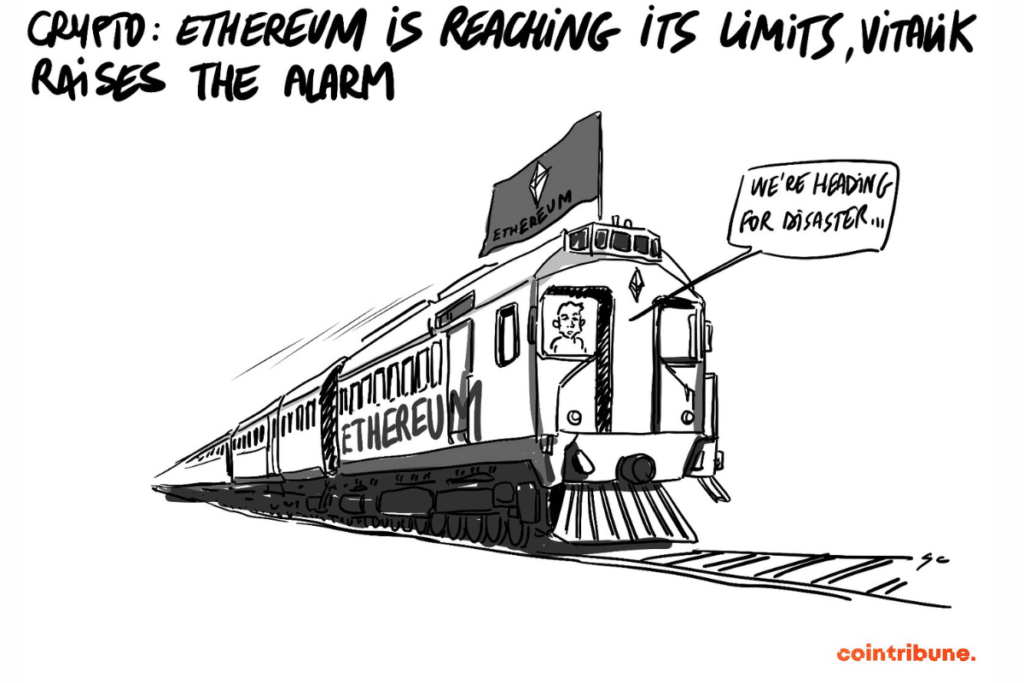Bitcoin, Binance, Ethereum, Solana And Ripple: The Biggest Crypto News From The Past Week
Between revolutionary announcements, technological evolutions, and regulatory turbulences, the crypto ecosystem continues to prove that it is both a territory of limitless innovations and a battlefield of regulatory and economic battles. Here is a summary of the most significant news of the past week around Bitcoin, Ethereum, Binance, Solana, and Ripple.

Gary Gensler clarifies: Bitcoin remains a commodity
Gary Gensler, Chairman of the SEC, reaffirmed that Bitcoin is not a “security” but a commodity, a critical distinction for the applicable regulatory framework. This clarification is based on Bitcoin’s decentralized nature, distinguishing it from other cryptocurrencies often controlled by a central entity. As a commodity, Bitcoin is comparable to gold or silver and escapes the stricter financial regulations of securities. Now, investors can buy Bitcoin via ETFs on the Nasdaq and NYSE. Despite this opening, Gensler reminds us that the crypto sector remains under heightened scrutiny to protect investors against abuse and manipulation.
Ethereum reaches its limits: Vitalik Buterin alerts the community
Vitalik Buterin, co-founder of Ethereum, recently warned that the network is nearing a critical point of saturation. The massive adoption of Layer 2 (L2) solutions, which use “blobs” to improve Ethereum’s performance, is pushing these storage spaces to about 75% of their maximum capacity. In response, Buterin proposes increasing the number of blobs per block to avoid slowing down L2 protocols. A new improvement proposal, EIP-7623, aims to increase the call data cost to limit block size while increasing storage capacity. This change is supported by several community members, including Jesse Pollak from Coinbase L2 Base, who sees it as a lever to foster L2 growth without compromising the network’s performance.
CZ regains his freedom: What future for Binance?
Changpeng Zhao, the founder of Binance, has been released after four months of incarceration. However, the terms of his judicial agreement prevent him from resuming a responsible position at Binance. Although he remains a majority shareholder, his direct influence on the company’s decisions may be limited by this agreement. Richard Teng, the current CEO of Binance, seems firmly established in his position, and any attempt to overthrow him could cause new tensions with authorities. CZ, however, retains some leverage as a shareholder to influence major decisions. Additionally, his recent philanthropic initiatives, such as a free education project, suggest that he may move away from Binance’s daily operations to focus on other priorities.
Ordinals revive the NFT market on Bitcoin
Ordinals on the Bitcoin network are experiencing an impressive resurgence, marking a turning point in the digital asset market. While NFTs on Ethereum and Solana struggle to regain their dynamism, Ordinals collections such as NodeMonkes, Quantum Cats, and Pizza Ninjas are seeing substantial increases. NodeMonkes even saw its floor price soar to 0.2 BTC (around $13,000). This return of Ordinals comes after the temporary dominance of Runes, a protocol that captured up to 70% of the transaction volume on Bitcoin in August. Today, Ordinals attract more and more investors and revive interest in Bitcoin in the NFT world. Since their launch in 2023, they have disrupted the ecosystem and generated a market valued at $759 million.
HMSTR airdrop turns into a fiasco, crypto community furious
The highly anticipated airdrop of the Hamster Kombat (HMSTR) token turned into a disaster, causing immense frustration among investors and the crypto community. The launch on September 26, 2024, was marked by unexpected disqualifications of many active participants, perceived as favoring influencers. Additionally, multiple delays and technical issues prevented many users from claiming their tokens, generating an atmosphere of anger. The final blow came with the token’s launch price, set at only $0.01, followed by a rapid 60% drop in value, well below the figures announced by some influencers.
XRP fueled by speculation, says SEC
The SEC recently highlighted the crucial role speculation plays in the valuation of XRP, the cryptocurrency associated with Ripple. A key document from the SEC v. Ripple trial reveals that speculation is not only a driver of XRP’s price but also a critical element of its utility, particularly in providing the liquidity needed for integration into products such as On-Demand Liquidity (ODL). However, this dependence on speculation raises concerns about XRP’s long-term stability. If speculative activity decreases, it could affect XRP’s liquidity and call into question its role in cross-border payment solutions. The ongoing trial also weighs on XRP’s current performance, with its price stagnating around $0.59. The outcome of this trial could determine the cryptocurrency’s future.
That’s the gist for this week. But if you want a more detailed recap and in-depth analysis directly in your inbox, don’t hesitate to subscribe to our weekly newsletter.
Maximize your Cointribune experience with our "Read to Earn" program! For every article you read, earn points and access exclusive rewards. Sign up now and start earning benefits.
Diplômé de Sciences Po Toulouse et titulaire d'une certification consultant blockchain délivrée par Alyra, j'ai rejoint l'aventure Cointribune en 2019. Convaincu du potentiel de la blockchain pour transformer de nombreux secteurs de l'économie, j'ai pris l'engagement de sensibiliser et d'informer le grand public sur cet écosystème en constante évolution. Mon objectif est de permettre à chacun de mieux comprendre la blockchain et de saisir les opportunités qu'elle offre. Je m'efforce chaque jour de fournir une analyse objective de l'actualité, de décrypter les tendances du marché, de relayer les dernières innovations technologiques et de mettre en perspective les enjeux économiques et sociétaux de cette révolution en marche.
The views, thoughts, and opinions expressed in this article belong solely to the author, and should not be taken as investment advice. Do your own research before taking any investment decisions.